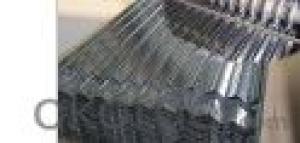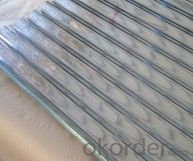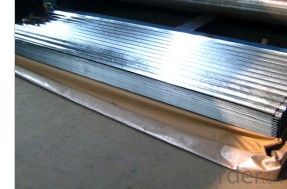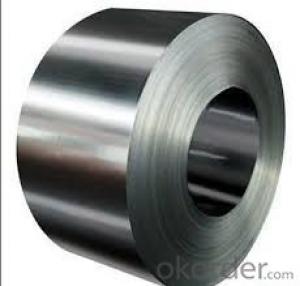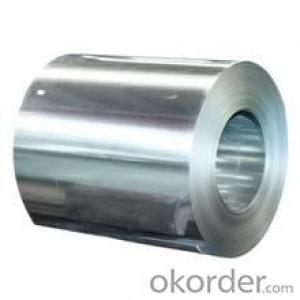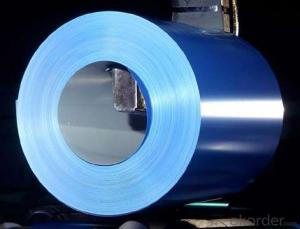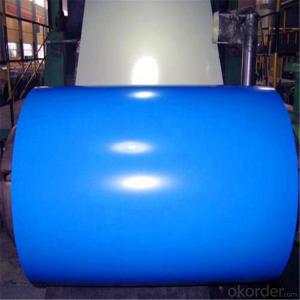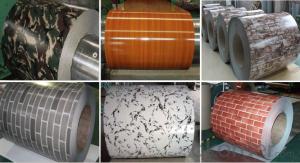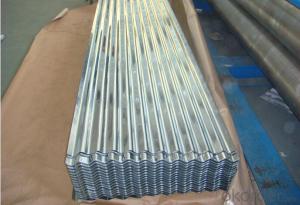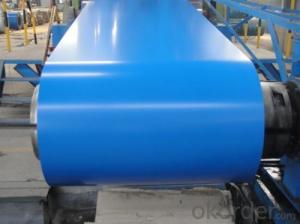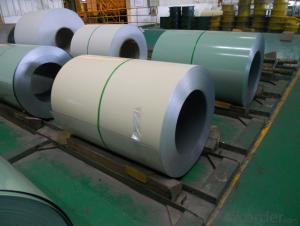BEST QUALITY CORRUGATED GALVANIZED STEEL SHEET
- Loading Port:
- China Main Port
- Payment Terms:
- TT OR LC
- Min Order Qty:
- -
- Supply Capability:
- -
OKorder Service Pledge
Quality Product, Order Online Tracking, Timely Delivery
OKorder Financial Service
Credit Rating, Credit Services, Credit Purchasing
You Might Also Like
| Thickness | 0.13mm-1.2mm |
| Width | 600mm-1250mm (AC) |
| Zinc coating | 50g-200g/m2 |
| Length | 1700mm-4000mm as your required |
| Tolerance | width: +/-5mm, thickness: +/-0.02mm |
| Spangle | regular spangle, big spangle, minimized spangle |
| | |
| Wave height | 18mm or as your required |
| Wave number | from 8 to 12 |
| Type | steel plate |
| Weight of each package | about 3mt |
| Technology | cold rolled |
| Surface treatment | galvanized, chromated, bright finished, unoiled(oiled) |
| Material | SGCC, SGCH |
| Standard | ASTM, JIS, DIN, GB |
| Packing | export standard packing, packed with moisture resistant paper and metal wrapping, securely tied for export, on metal skids |
- Q: How are steel coils used in the manufacturing of metal containers?
- Steel coils are used in the manufacturing of metal containers as they are typically unrolled and cut into specific sizes and shapes to form the body of the container. These steel coils provide strength and durability to the containers, making them suitable for storing various products such as food, beverages, chemicals, and more.
- Q: Could someone please explain what happens when steel is heat treated and why these happenings cause the steel to become harder? Please dig down into the micro details of the crystallites but in somewhat laymen's terms. Also describe the processes which achieve these results; if you have the time. Thanks for your time and effort.
- If you are speaking of a micro mini skirt, then i would think that the answer would be 1000 Hostess HoHo's would equal a macro skirt.
- Q: Describe and explain how the differences in the properties of the thee main types of steel allow them to be used in different ways. I have some chemistry homework due in for tomorrow (yes I know i left it a bit late but I really don't like chemistry) and I would love it if I could actually at least pretend to my teacher that I know what she's on about this lesson because honestly, I really don't know what she spends so long telling us all. Any help would be appreciated and points for the best answer!
- Steel Uses And Properties
- Q: What are the challenges in coil blanking for high-strength steel?
- Some challenges in coil blanking for high-strength steel include the increased hardness and strength of the material, which can lead to greater wear and tear on cutting tools. Additionally, high-strength steel may have less ductility, making it more prone to cracking or breaking during the blanking process. The higher tensile strength and spring-back characteristics of the steel also require precise control and adjustment of blanking parameters to ensure accurate and consistent part dimensions.
- Q: Can steel coils be deep-drawn?
- Yes, steel coils can be deep-drawn. Deep-drawing is a metal forming process where a sheet or coil is drawn into a die cavity to create a three-dimensional shape. Steel coils, due to their high strength and ductility, are often used in deep-drawing applications to produce various products such as automotive parts, kitchen appliances, and containers.
- Q: I'm trying to buy a Survival,tactical knife but don't know what steel is better
- Depends on the grade of metal and how it is tempered. Poor grade or any steel is worthless. Poor temper on quality steel is worthless. I have several 440 Stainless Steel knives that hold a edge very well. But I to have several carbon steel knives that also hold a fine edge. It pretty much boils down to you get what you pay for, top quality don’t come cheap. I prefer name brands like Puma, Buck, S.O.G, Gerber and Old Timer. These brands have never failed me yet. A $5.00 knife is a $5.00 knife , where as S.O.G, and Puma can run you a couple hundred dollars easy. But I have field dressed 5 deer and that was cutting through the pelvic bone of all 5 deer before dulling my Puma, but back in 1978 that puppy cost me $65.00. For Tactical knives S.O.G is my favorite. Don’t be fooled by the cheesy Rambow survival knives, remember the key word is survival so your life may some day rest on the quality knife you buy. It don’t have to have a cheap compass or hollow handle to hold fish hooks and matches. It needs to be a knife you can bet your life on. Look at the knives that the military special forces use today S.O.G makes up most of them Either the S.O.G “Seal pup” used by the Army Rangers or the full sizes “Seal” used by other military special forces teams. ( my son was a trainer for the U S Army Rangers and he was issued a S.O.G Seal Pup) I would suggest you invest in a high quality knife, you can always make up a small survival kit using quality hooks and matches and a quality compass. Remember your life may some day rest on what you invest in. You would not buy cheesy health insurance, now would you? D58 Hunting with Rifle, Pistol, Muzzle loader and Bow for over 3 decades. Reloading Rifle, Pistol and shotgun for over 3 decades.
- Q: How are defects in steel coils repaired?
- Defects in steel coils are repaired through various methods depending on the type and severity of the defect. Common repair techniques include grinding, welding, soldering, or using heat treatment processes to correct the defects. The specific approach is determined by professionals after assessing the nature of the defect and considering the desired quality and performance standards of the steel coils.
- Q: How are steel coils used in the production of pipes and tubes?
- Steel coils are an essential component in the production of pipes and tubes. They are used as the raw material to create the cylindrical shape of the pipes and tubes. The coils are unrolled and fed into a machine called a pipe or tube mill, where they undergo a series of manufacturing processes. First, the steel coils are unwound and straightened to remove any bends or twists. Then, the edges of the coils are trimmed to ensure they are smooth and even. This process is known as slitting. Next, the coils are passed through a forming machine, where they are bent into the desired shape. For pipes, the coils are bent into a circular shape, while for tubes, they can be formed into various shapes, including square, rectangular, or oval. Once the coils have been formed, they are welded together along the length to create a continuous pipe or tube. This welding process can be done using various techniques, such as high-frequency induction welding, electric resistance welding, or submerged arc welding. After the welding is complete, the pipes or tubes may undergo additional processes to improve their properties. These processes can include heat treatment, such as annealing or quenching, to enhance their strength or hardness. Finally, the pipes or tubes are cut to the desired length and may undergo further finishing processes, such as straightening, polishing, or coating, depending on their intended application. In summary, steel coils are used in the production of pipes and tubes as the starting material. They are unrolled, straightened, and formed into the desired shape before being welded together to create a continuous pipe or tube. These products can then undergo various additional processes to improve their properties and meet specific requirements.
- Q: Help please.What atoms are there in steel?Like water is equals to 1 Oxygen atom + 2 Hydrogen atoms.Thnx 4 d help.
- Steel is an alloy consisting mostly of iron, with a carbon content between 0.2 and 1.7 or 2.04% by weight (C:1000–10,8.67Fe), depending on grade. Steel is Fe(iron) and Carbon alloy. These are the atoms in certain ratio that make up steel. Its not a molecule but alloy.
- Q: As we all know Shaq killed the movie Steel by suckin so bad but does anyone know what happened to the comic book version.
- Was cancelled after the 25th issue or so....the movie probably killed the comic too!
Send your message to us
BEST QUALITY CORRUGATED GALVANIZED STEEL SHEET
- Loading Port:
- China Main Port
- Payment Terms:
- TT OR LC
- Min Order Qty:
- -
- Supply Capability:
- -
OKorder Service Pledge
Quality Product, Order Online Tracking, Timely Delivery
OKorder Financial Service
Credit Rating, Credit Services, Credit Purchasing
Similar products
Hot products
Hot Searches
Related keywords
